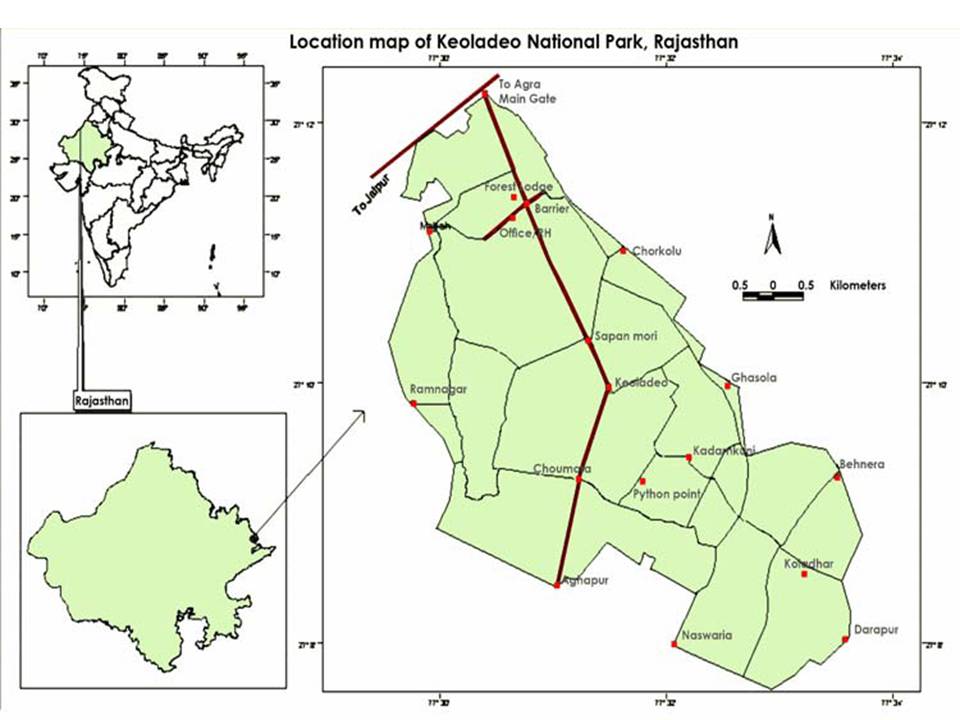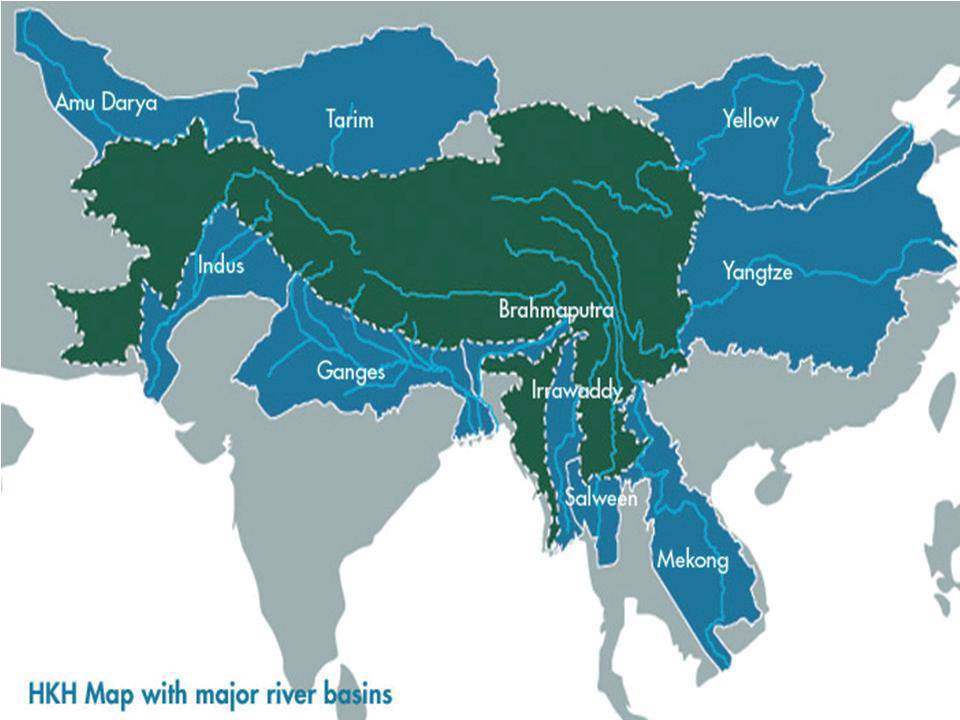Droughts and Floods
Wetlands for water quality management – The science and technology: A paper from Current Issues in Water Management
Posted on 10 Jan, 2012 10:24 PMThe introduction begins witha brief overview of wetlands: their nature and services offered. These wetlands are ecosystems with water that is static or flowing and characerized by emergent , floating and submerged aquatic vegetation. Some of the services provided by wetlands are fish and fiber, water supply, water purification, flood regulation, recreational opportunities and tourism. It then details the importance of wetlands for water purification.Toxins enter the wetlands through farms, factories and runoff. These toxins are broken down or otherwise buried using a variety of bacteria.

Location map of Keoladeo National Park
Changing currents: Plumbing the rights: A film highlighting water as a common good
Posted on 10 Jan, 2012 08:55 PMSource: Culture Unplugged
Shades of blue: A symposium on emerging conflicts and challenges around water - Seminar magazine
Posted on 10 Jan, 2012 07:53 PM(as posed by Sunjoy Joshi, Director and Distinguished Fellow, Observer Research Foundation, Delhi)
Democratisation of water management - The experience of Tamil Nadu with governance reforms
Posted on 09 Jan, 2012 12:18 PMNor is the introduction of the private sector and the reduction in the role of the government going to help. Rather, the time has come to introduce changes at the basic or the fundamental level in the way in which the water sector functions.
There is an urgent need to bring about reforms in governance by moving towards decentralisation and democratisation, leading to involvement of people from all the sections of the society, who know and understand that they are responsible for the system and its functioning, as well as by introducing principles of equity and social justice. The papers demonstrate the successful implementation of this approach by describing the experience of Tamil Nadu at democratising water management through introduction of reforms at the level of governance, through involvement of the Tamil Nadu Water Supply and Drainage Board (TWAD).
Environment Statistics – A compendium by the Ministry of Statistics and Programme Implementation (2011)
Posted on 07 Jan, 2012 04:25 PMIt broadly covers five core parameters, viz., biodiversity, atmosphere, land/soil, water and human settlements suggested by the Framework for Development of Environment Statistics (FDES) published by United Nations Statistics Division (UNSD) in 1984.
Examining the storm protection services of mangroves of Orissa during the 1999 cyclone – A special article in EPW
Posted on 06 Jan, 2012 11:03 PMThese ecosystems provide a bunch of direct and indirect services to humankind. This special article in Economic and Political Weekly (EPW) by Saudamini Das examines whether the mangrove forests in Kendrapada district of Orissa played any protective role during the severe cyclone that hit the state in October 1999.
Floods in Orissa: No lessons learnt – An article in EPW
Posted on 06 Jan, 2012 02:26 PMThis article by Kishore C Samal in the Economic and Political Weekly (EPW) discusses how in the natural disater prone state of Orissa the authorities have not been able to draw up an effective disaster management plan and politicians continue to play politics with relief works. It argues that for dealing with these disasters and the relief and rehabilitation work that follows what is needed is the participation of the local community and functionaries of panchayati raj institutions, and coordination with national and international bodies.
Big dams and protests in India: A study of Hirakud dam – An article in EPW
Posted on 06 Jan, 2012 12:29 PMIt is evident that the domestic resistance to the project was variously compromised by nationalist rhetoric, imperatives of state development and absence of transnational support. The Hirakud dam project has failed on all of its objectives – flood management, hydropower production, irrigation and navigation. Its socio-economic impact has been devastating.
A plan for resolving Mullaperiyar conflict in Kerala - Forum for Policy Dialogue on Water Conflicts in India
Posted on 31 Dec, 2011 12:56 PMGuest Post: Forum for Policy Dialogue on Water Conflicts in India
The Forum for Policy Dialogue on Water Conflicts in India has been closely following the Mullaperiyar issue for the last several years. The polarisation of views around the Mullaperiyar has hardened over the years. The Tamil Nadu government insists that the Mullaperiyar dam is safe and that the water level must be maintained at the maximum level as per the agreement. The Kerala government insists that a new dam, downstream of the present dam, must be built because the present dam is unsafe. The recent tremors with their epicentres near the dam and the already diminishing trust and rising fears and apprehensions on both sides have created a grave situation needing immediate intervention and your initiative in getting the two parties together is a welcome move.
Interdisciplinary approach to water management: From the uplands to the coast - The Ganges-Brahmaputra-Meghna Basin
Posted on 30 Dec, 2011 11:04 AMIn this paper, Jayanta Bandopadhyay explains the need for an interdiscipliinary framework for water resource management. He states that this framework needs to include ecological, social, economic and institutional perspectives. These perspectives are essential to facilitate cooperation over the management of transboundary rivers.





